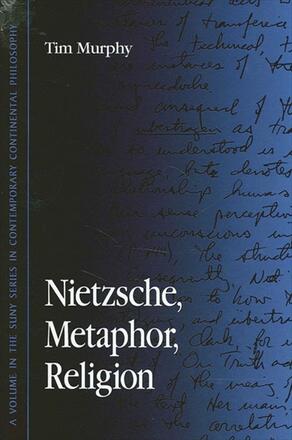
Nietzsche, Metaphor, Religion
Alternative formats available from:
Presents a radically anti-foundationalist reading of Nietzsche's philosophy of religion.
Description
Nietzsche argued that metaphor is at the basis of language, concepts, and perception, making it the vehicle by which humans interpret the world. As such, metaphor has profound consequences for the nature of religion and of philosophy. Nietzsche, Metaphor, Religion connects Nietzsche's early writings on rhetoric and metaphor, especially as understood by contemporary French philosophers and literary theorists, with Nietzsche's later writings on religion. The result is a radically anti-foundationalist reading of Nietzsche's "philosophy of religion" as an unending series of metaphoric-literary agons or contests.
Tim Murphy teaches in the Department of Religion at Case Western Reserve University.
Reviews
"Murphy's book should be positively acknowledged as one of the rare ones that does not attempt to use Nietzsche's writing on religion for constructive religious purposes. " — International Studies in Philosophy
"Murphy really tackles a significant subject, and does so in a way which will have a broad appeal. He does a very fine job exploring highly significant issues in Nietzsche interpretation and their ramifications beyond narrow disciplinary boundaries.
"Is Nietzsche just laying out another metaphysics, an alternative epistemology, just another competing axiology? Murphy shows that this is not what is going on at all. He gives an overview of the dispute in his comparison of the 'doctrine' vs. the 'text' approach to Nietzsche's thought. Bravo!" — George H. Leiner, editor of New Nietzsche Studies